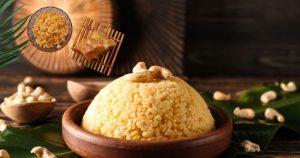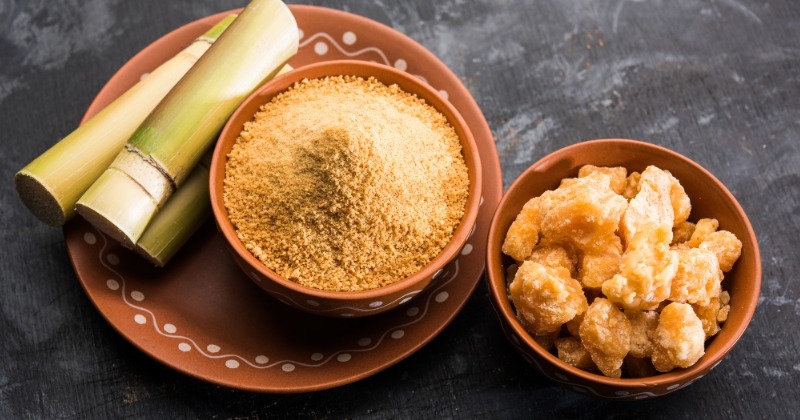

In an era where sustainable living and conscious consumption are gaining prominence, individuals are seeking alternatives that align with both their health and environmental values. Jaggery, a natural sweetener deeply rooted in Indian tradition, emerges as a sustainable and eco-friendly choice. In this article, we will explore the ecological benefits of choosing jaggery over other sweeteners, shedding light on its positive impact on the environment.
One of the key attributes that makes jaggery eco-friendly is its minimal processing. Unlike refined sugar, which undergoes extensive refining processes involving chemicals and energy-intensive machinery, jaggery is produced through simple methods that require less energy and leave a smaller carbon footprint. This lessens the strain on natural resources and reduces the pollution associated with industrial processing.
Jaggery is primarily derived from sugarcane, a renewable crop that can be cultivated multiple times a year. Sugarcane cultivation contributes to carbon sequestration, as the crop absorbs and stores carbon dioxide from the atmosphere. Moreover, sugarcane is known for its ability to enrich the soil, enhancing its fertility for future crops.
Sugarcane cultivation for jaggery typically employs traditional farming practices that promote biodiversity. Small-scale farmers often cultivate sugarcane alongside other crops, creating a diverse ecosystem that supports various plant and animal species. This practice contributes to the preservation of local biodiversity, helping to maintain a balanced and thriving environment.
Jaggery production relies on natural methods of clarifying sugarcane juice and solidifying the syrup. This reduces the need for chemical additives, pesticides, and synthetic substances that are commonly used in the refinement of sugar. As a result, the ecological impact of jaggery production is considerably lower, with fewer harmful chemicals entering the environment.
The traditional methods used in jaggery production, such as boiling sugarcane juice in open pans or kettles, consume less energy compared to the energy-intensive processes involved in refining sugar. This energy efficiency contributes to lower greenhouse gas emissions and less strain on power resources.
Jaggery production generates minimal waste compared to the refining of sugar. The byproducts of jaggery production, such as bagasse (sugarcane fiber), can be repurposed as animal feed or used as a renewable energy source through biomass conversion. This reduces the accumulation of waste in landfills and promotes a circular economy.
The production of jaggery is often carried out by small-scale farmers and artisans, particularly in rural areas. Choosing jaggery supports local economies and provides livelihoods for these communities, fostering socio-economic sustainability and resilience.
Jaggery’s production processes typically involve lower carbon emissions compared to the energy-intensive refinement of sugar. When consumers choose jaggery, they contribute to a lower carbon footprint associated with their dietary choices, aligning with a more environmentally conscious lifestyle.
By consciously opting for jaggery as a sweetener, consumers send a clear message to the food industry about their preference for sustainable and eco-friendly choices. This collective demand has the potential to drive more sustainable practices within the industry as a whole.
Also Read:
Jaggery stands as a shining example of an eco-friendly and sustainable sweetener choice that aligns with both personal health and environmental values. From minimal processing and reduced chemical use to supporting local economies and preserving biodiversity, the ecological benefits of choosing jaggery extend far beyond its natural sweetness. By incorporating jaggery into our diets, we contribute to a more harmonious relationship with the planet, one sweetened step at a time.




Copyright © 2024 Desigud.in All Rights Reserved